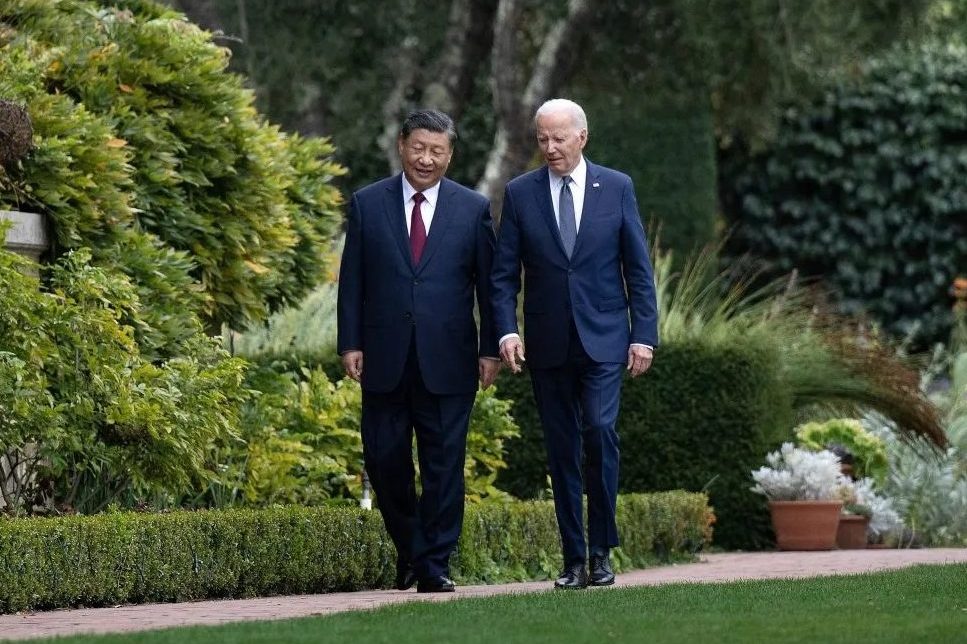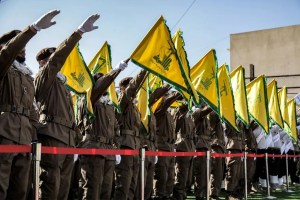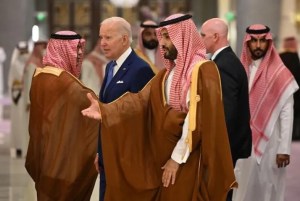Perhaps the most important achievement of the summit between Xi Jinping and Joe Biden was that it was held at all. Expectations were set low and were duly met — assuming the modest agreements are carried through. There was little progress on issues that have pushed relations to the lowest point in four decades, and Xi still remains a “dictator” in the eyes of the American president. Asked if he still held that view at the end of a carefully choreographed solo news conference, at which only four questions were allowed, Biden said, “Look, he is. He’s a dictator in the sense that he runs a country that’s a communist country and is based on a form of government that is totally different than ours.” That is of course a truism, but Beijing bristled last time Biden used the word, and how the Chinese Communist Party barks back will be a measure of whether this summit really has made any fundamental difference.
Xi may be overestimating the continued magnetism of the Chinese economy to western businesses
The four-hour summit, held at the historic Filoli estate on the eastern slope of the Santa Cruz mountains, around thirty miles south of San Francisco, was the first meeting between the two men for a year, and was held on the sidelines of the Asia Pacific Economic Cooperation meeting in that city.
The two most significant agreements were on military-to-military communications and on Beijing curbing the export of chemicals used to make fentanyl. Both look fragile. China suspended direct military contacts with the US in the wake of the April 2022 visit to Taiwan by then Speaker Nancy Pelosi. Since then the number of close encounters between the two militaries in and above the South China Sea has soared. US officials have accused China of a “dangerous pattern of coercive and risky operational behavior,” including a Chinese J-11 fighter jet coming within ten feet of a US Air Force bomber flying in international airspace, and a near collision between an American naval destroyer and a Chinese navy ship that had crossed its path as it moved through the Taiwan Strait. “We’re back to direct, open, clear… communication,” said Biden, though the real test will be in any change in China’s behavior, which seems unlikely.
Washington has been pushing for a fentanyl deal for some time, but in the past Beijing has taken a transactional approach, demanding that the US lifts restrictions on a key Chinese police forensics institute suspected of participating in human rights abuses. The Ministry of Public Security’s Institute of Forensic Science had its access to American technology curbed after it was accused of involvement in mass surveillance against Uighurs and other minority groups in China’s far western Xinjiang province. China denies the accusation and claims it needed access to US tech for counternarcotics work. It is not clear what concessions were made to achieve the Fentanyl Deal.
Biden sidestepped questions on Taiwan and whether he stood by earlier comments to defend the island in the event of a Chinese invasion. A US official briefing journalists said there had been a “substantial exchange” on the issue. “There seemed to be a slight amount of exasperation in [Xi’s] comments,” said the official, but the Chinese president “basically said there are no such plans [to invade].” Few military experts expect a full-frontal attack, which would be highly risky for China. Instead it is employing multiple other tools for pressuring the island. These range from military intimidation through near constant drills and practicing for a blockade, to cyber-attacks and disinformation campaigns.
According to Beijing’s description of the meeting, Xi pressed Biden to lift sanctions and export controls, which Washington has used to limit China’s access to American technology with military applications. That’s unlikely to happen — which is one reason why Xi has taken his pitch directly to American businesses, believing he can apply pressure through those who are heavily invested in China. His first public comments on the summit came at a dinner last night attended by US business executives, reportedly including Tesla’s Elon Musk and Apple’s Tim Cook, as well as Stephen Schwarzman of private equity firm Blackstone Group and Larry Fink of investment management firm BlackRock. “The world needs China and the US to work together for a better future,” the Chinese president said. Executives paid $40,000 for a ticket to sit at the table with Xi, according to US media reports.
In recent months, business executives visiting China, including Cook and Musk, have enjoyed better access to top Chinese officials than members of the Biden administration. In the wake of the February shooting down of a Chinese spy balloon that crossed the United States, Chinese leaders refused to take calls from their US counterparts. Instead, “old friends,” including Henry Kissinger and Bill Gates, were given the red carpet treatment, an even audience with Xi, who clearly believed they would argue China’s case in Washington. Wall Street in particular has over the years been one of Beijing’s most important lobbyists.
So important was direct access to US companies that during negotiations for the summit, Beijing had insisted that Xi sit down for a banquet with business leaders ahead of the meeting with Biden. Washington reportedly refused, and eventually Chinese diplomats backed down and agreed to the business meeting taking place after the summit.
Xi may be overestimating the continued magnetism of the Chinese economy to western businesses. In the past it seemed that western executives would put up with almost anything for a slice of the mythical China market, but Xi has made it far more difficult to do business in China, prioritizing Communist Party control and security instead. During the three months to the end of September, foreign businesses pulled more money out of China than they put in, according to official figures on investment flows.
The Chinese economy is looking increasingly sickly, with falling rates of growth and problems ranging from a bursting property bubble to mass youth unemployment. The country’s growth model, relying on heavy and wasteful state investment in infrastructure, has run out of steam. The state is now throwing subsidies at “green” technologies, including solar energy and electric vehicles, which is already producing a global glut and spawning more trade tensions. The CCP’s main instrument of global economic influence, the Belt and Road Initiative, under which countries are blessed with Chinese-built roads, railways, bridges, ports and power stations — and massive debt — is also floundering.
Biden also asked Xi to use his influence with Iran and Russia, to help resolve the Ukraine conflict and to ease tension in the Middle East, something Beijing has been reluctant to do, seeing both as ways of extending its own global influence. Ahead of the summit, the two sides also agreed to accelerate efforts to address climate change, though it is difficult to say what that means in practice, since Beijing has linked its cooperation with progress in other areas and is continuing to build coal-fired power plants at break-neck pace.
The most striking difference between the San Francisco meeting and earlier summits was the background against which it took place. China’s inexorable rise, replacing America as the world’s largest economy, no longer looks inevitable. Xi’s frequent assertion, dong sheng, xi jiang (the “east rises, the west falls”) rings increasingly hollow. Xi looks vulnerable, and as much as he has and will continue to blame the West, and America in particular, for China’s problems, he really has only himself to blame.
This article was originally published on The Spectator’s UK website.


















